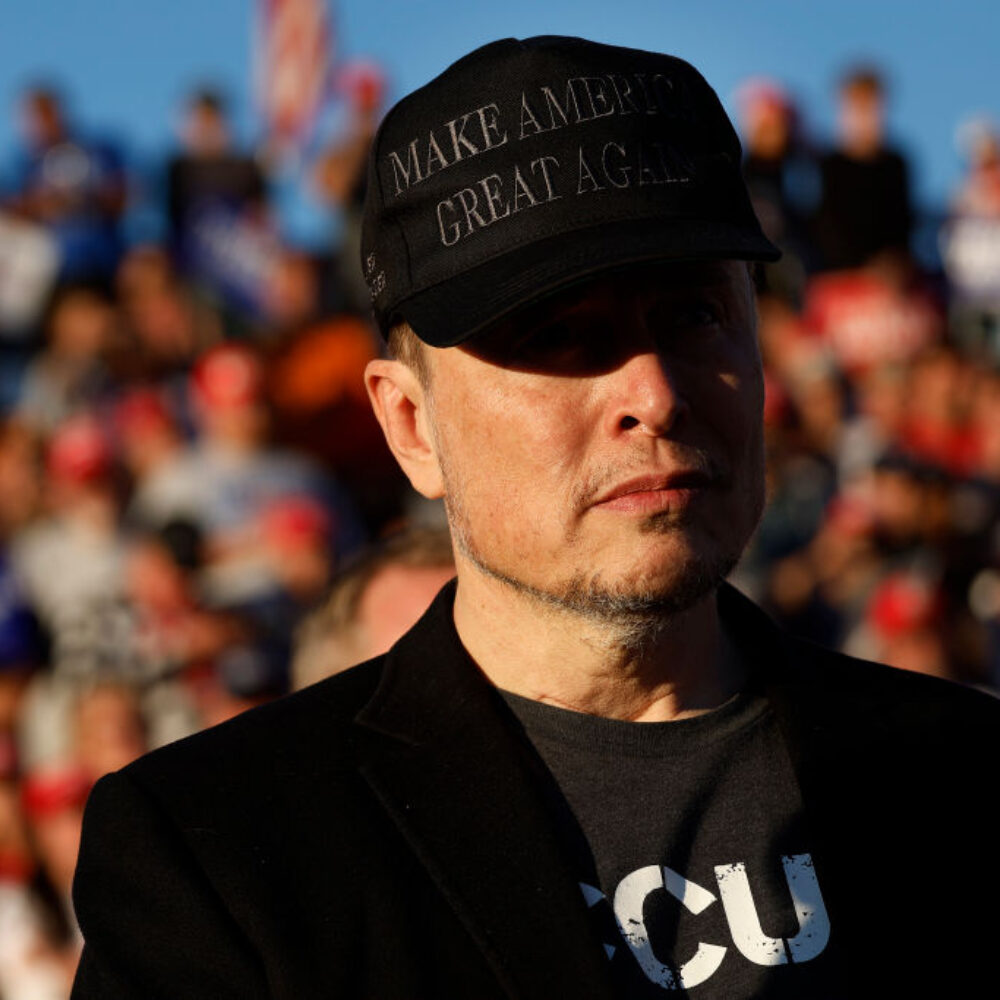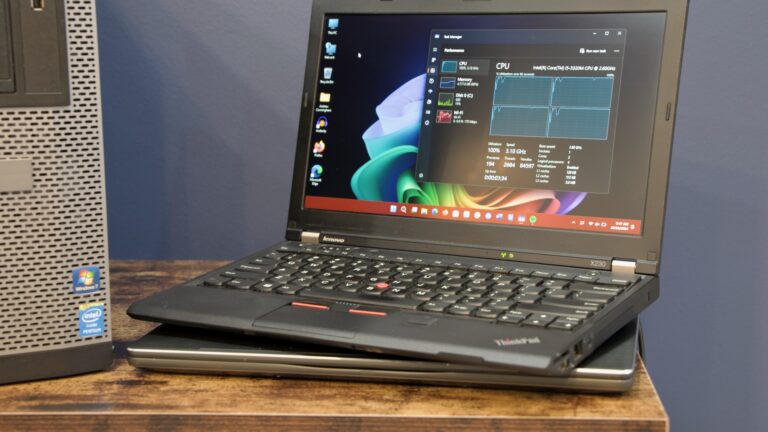NASA chief says ties between SpaceX CEO and Putin should be investigated.

Elon Musk wears a black "Make America Great Again" ball cap while attending a campaign rally with Republican presidential nominee, former President Donald Trump, in October. Credit: Anna Moneymaker/Getty Images
In a blockbuster story published Friday morning, The Wall Street Journal reports that Elon Musk has been in regular contact with Russian President Vladimir Putin for about two years, with the discussions covering a range of issues from geopolitics to business to personal matters.
There are no on-the-record sources confirming the regular conversations between Musk and Putin, and Musk did not comment to the news organization. A Putin spokesperson said the Russian leader and Musk have had just one telephone call. However, the report is plausibly true, and the Journal cites "several current and former US, European, and Russian officials." This is also not the first time there have been reports of contact between Musk and Putin.
The new story about Musk's direct links to an avowed enemy of the United States immediately raised concerns among some prominent US officials who work with the billionaire entrepreneur, including NASA Administrator Bill Nelson.
"I don’t know if that story is true," Nelson said in a conversation with Semafor on Friday morning. "If it’s true there have been multiple conversations with Elon Musk and the president of Russia, then that would be concerning, particularly for NASA and the Department of Defense." Nelson added that the report should be investigated.
To Russia, with love
Musk's motivations for speaking directly with Putin are not immediately clear. His largest companies, SpaceX and Tesla, do not do business directly with the Russian government. In fact, the rise of SpaceX as a dominant player has substantially harmed Russia's space business in multiple ways: it helped force US rival United Launch Alliance to stop buying Russian rocket engines, it reduced demand for Russian commercial launch services, and SpaceX's Crew Dragon vehicle allowed NASA to stop spending hundreds of millions of dollars a year for Russian transportation to the International Space Station.
Unlike Tesla's complicated interactions with China, which give that country some leverage over Musk's finances, Russia has no such levers. The most plausible answer for why Musk is conversing with Putin is that he sees himself as a global power broker and wants to do bold things like solve the Ukraine crisis. Musk has ideas and views for how the world should be, and developing relationships with world leaders will help advance those ideas. Musk is also opportunistic and must believe that he can manage Putin in a way that is advantageous to his personal and business aims.
One concern for US policymakers is that this could represent a break in a long-running symbiotic relationship between Musk and America. For a couple of decades the United States' and Musk's ambitions—to build electric cars, reusable rockets, and solve the world's big problems with technology—have moved forward more or less harmoniously. Musk thrived amid America's ethos of freedom and capitalism. The nation benefited from world-leading technology and economic development.
Nowhere has this relationship borne more fruit than at SpaceX, which has almost singlehandedly assured US preeminence in space for at least the next decade and probably beyond. Musk builds the best rockets, operates the only proven US human spacecraft, and flies more than half of the active satellites in Earth orbit. In the wake of Russia's invasion of Ukraine, Europe turned to SpaceX to get its most valuable satellites into space, and Starlink provided essential communications in Ukraine. NASA's lunar program only succeeds if SpaceX's Starship vehicle succeeds.
But in the last two years, the same time frame in which Musk has reportedly been in contact with Putin, the once symbiotic relationship between Musk and the United States has begun to fray. This has also coincided with Musk's purchase of Twitter and increasing alignment with conservative politics.
Musk goes MAGA
Many Americans are celebrating Musk's bromance with Republican presidential nominee former President Donald Trump. They appreciate his embrace of Republican politics and the more than $100 million he has invested in Trump winning the presidency. In characteristic Musk fashion, he has gone all-in on a cause he deems essential to the future of his interests and those of humanity, even temporarily living in Pennsylvania.
But for many other Americans, the response to Musk's activities has been revulsion. He has used social network X (formerly Twitter) to push an increasingly partisan viewpoint and peddled a stream of ideas and theories that can accurately be described as misinformation. These people are increasingly uncomfortable with Musk's power over the US space program and the country's electric vehicle industry, and ability to influence geopolitical affairs through the Starlink constellation for which there is no viable competitor at present. The idea that Musk is regularly conversing with Putin, an avowed foe of the United States and Western democracies, is deeply uncomfortable.
After nursing a libertarian streak for decades, Musk has become ultra-political. He is loved. He is hated. Because he is so personally embodied by the brands of his biggest companies—much of Tesla's stock value is predicated on Musk's perceived ability to steer into the future, and for all intents and purposes, Musk is SpaceX—there are bound to be consequences not just for the man, but for his brands.
Musk's increasingly partisan positions have already affected Tesla, potentially reducing sales to Democratic-leaning voters. But until recently, SpaceX has largely flown above the fray. However, that could change. During Musk's recent showdown with Brazil, for example, the Starlink Internet service was caught in the crosshairs.
Implications for SpaceX
At a minimum, in the wake of Friday's report, Musk will likely face increased calls for the revocation of his national security clearance. As the launch provider for sensitive Department of Defense missions, Musk has access to privileged information about the capabilities of spy satellites and other national security assets. He also has critical contracts with the US military for Starlink communication services under the Starshield business unit.
In addition, Musk's political activities are playing out as the US Space Force is beginning to award contracts as part of the latest round of national security launch missions, known as NSSL Phase 3. It is possible the US military could lean more into the Vulcan rocket and United Launch Alliance.
Some of the more ardent critics of Musk's behavior have called for the US government to force Musk to divest his interest in SpaceX. Musk founded SpaceX more than 22 years ago and remains the dominant shareholder, with total autonomy to make decisions. This would be a nuclear option and, in reality, probably would do more harm than good to SpaceX, which for years has thrived on Musk's audacious goals and relentless pressure to achieve remarkable feats. It seems unlikely to occur at this time.
What seems clear is that the publication of Friday's article reflects the concerns of some people within the US intelligence community about Musk's behavior, his ability to conduct Cowboy diplomacy, and the power his money and technologies give him as an individual.
What happens next will, undoubtedly, depend to some extent on the results of the US presidential election next month. A Trump victory would likely give Musk carte blanche to continue pursuing his interests, with the clear message to US agencies to enable his businesses rather than to restrict them for regulatory reasons. Musk would likely enjoy increased power to pursue his aims until the end of the Trump presidency or until falling out with Trump. Such a scenario certainly cannot be ruled out among two people who are accustomed to calling the shots and not being told no.
Should Kamala Harris win the presidency, a lot would hinge on how Musk responds to the election. He could say some mea culpas and probably move on, but if he goes the election-denier route, he and his businesses probably would face heightened scrutiny. US regulatory agencies could act with more zeal, and Musk's activities could be more closely investigated for violation of US laws. And NASA and the US Space Force could do more to ensure that other US companies can emerge to challenge SpaceX's dominance.
Eric Berger is the senior space editor at Ars Technica, covering everything from astronomy to private space to NASA policy, and author of two books: Liftoff, about the rise of SpaceX; and Reentry, on the development of the Falcon 9 rocket and Dragon. A certified meteorologist, Eric lives in Houston.
